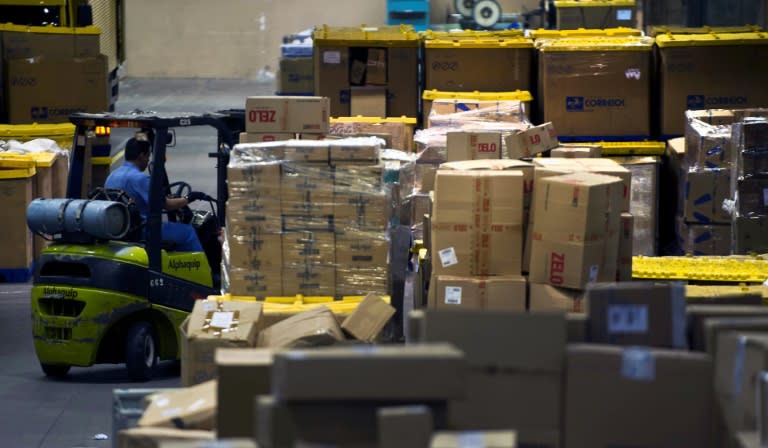Obstacles litter privatization path in Brazil under Bolsonaro
An ambitious privatization plan by the incoming government of Brazil's president-elect Jair Bolsonaro faces some challenges, not least from a cadre of ex-military men in the cabinet and reticent lawmakers. Bolsonaro's future economy minister Paulo Guedes, a liberal economist steeped in free-market theory from the University of Chicago, is leading the charge to sell off state assets. The goal is to raise a trillion reais (around $260 billion), which would be used to pay down steep public debt and refill near-empty state coffers. The plan has become more urgent as Brazil's debt has risen from 56 percent of gross domestic product in 2014 to more than 76 percent this year. The World Bank forecasts it could go to 140 percent of GDP in 2030 if drastic measures are not taken. "The possibilities are reasonably good and there are plenty of assets that should be sold at fair market prices," Goldman Sachs economist Alberto Ramos told AFP. "The issue here is not so much to raise revenue to reduce the very large stock of public debt -- although that is also a plus given the dire fiscal straits -- but to increase investment and the efficiency of these companies," he said. But Bolsonaro is going to have to reckon with seven military men among his 22 ministers who could object to Guedes' direction. "Among the civilians (in the government), there is a fairly strong privatizing desire. On the military side, there are those who treat these issues more warily, who see strategic value in some state assets," said Andre Perfeito, with the Brazilian investment firm Spinelli. Petrobras, the state-owned oil company, is at the forefront of the issue. It is Brazil's biggest company and by far its most valuable asset. But Bolsonaro, a far-right former army captain, has come out against selling its core businesses, clouding investors' views of what might finally be made available. Perfeito said the business sector had initially had "cold sweats" wondering if a military man would be put in charge of Petrobras. But finally a free-market economist, Roberto Castello Branco, was chosen to take over. - Sensitive cases - "Even if the government doesn't totally privatize Petrobras, that doesn't mean the government won't divest certain production entities," Perfeito said. Petrobras has already launched a sell-off program to cut its corporate debt and heavy losses it suffered between 2014 and 2016 when it was revealed to be at the center of a vast corruption and influence-peddling scandal, at the same time as oil prices slumped. Bolsonaro has also discarded the possibility of privatizing public banks Banco do Brasil and Caixa Economica Federal, or the BNDES development bank, calling them "strategic." But other enterprises, such as the Brazilian postal company Correios and the computer services unit Serpro, could be sold off. One of the more sensitive cases promises to be state power company Eletrobras, the largest electricity producer in Latin America. Sales of its energy distribution activities started this year after several delays due to legal proceedings. The military men joining government under Bolsonaro see the energy sector as "sensitive for strategic reasons," Perfeito said. "We don't know who will win the tussle" between them and Guedes' "Chicago Boys." The outgoing finance minister, Eduardo Guardia, has said he did not view the current economic climate as conducive to privatizing Eletrobras this year. - Parliamentary influence - To see through the privatization program, for which there is no specific timetable, the government will need approval from Brazil's Congress. Bolsonaro's right-wing Social Liberal Party became the second-biggest party in the new parliament in October elections -- but with only 52 seats out of the total 513, it is far from holding a majority alone. The new president is counting on parliamentary lobbies that align with his views -- such as evangelicals and pro-agribusiness deputies -- and which cut across many of the party lines. But the left-wing and center-left opposition is intent on slowing the pace of privatizations, and for that it can count on some lawmakers on the right who want to see the system of political patronage of top jobs in state companies continue. "The recent corruption scandals have shown how important the state companies are for certain politicians seeking influence," Ramos said. The Congress has never shown itself to be very favorable to a profound privatization campaign."





